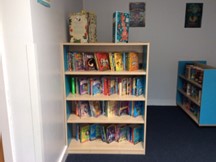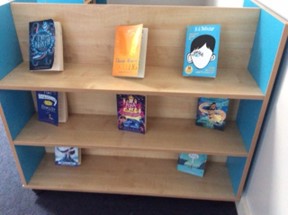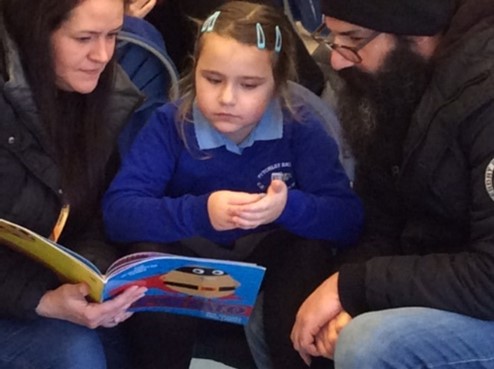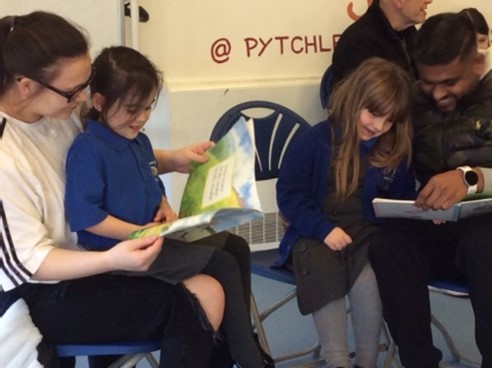Curriculum
The school operates a two year cycle. For the academic year 2023-2024 the school follows Cycle B.
If you would like to find out more about our curriculum please contact our Headteacher, Mr Scott on head@pytchley.pdet.org.uk
Curriculum Intent
You can download a copy of our curriculum intent statement here:
Long Term Curriculum Plans - Cycle B
Ducklings Long Term Year Plan - 2023 - 2024
Robin Long Term Y1-2 Plan - Cycle B 2023 - 2024
Merlin Long Term Y3-4 Plan - Cycle B 2023 - 2024
Kite Long Term Plan Y5-6 - Cycle B 2023 - 2024
Phonics, Reading Schemes and Writing
Early Reading and Phonics
We use Little Wandle Letters and Sounds as our Systematic Synthetic Phonic scheme. We teach daily lessons to the children in EYFS and Year 1 to ensure they build the necessary phonic knowledge to enable them to read.
All lessons follow the same format which gives children the opportunity to rehearse sounds already known and learn new sounds. They then apply sounds known into reading words and sentences. All sessions also provide opportunities for spelling.
The Little Wandle Letters and Sounds Guide for Parents gives information about how this learning progresses over both EYFS and Year 1:
Phase 2 sounds taught in Reception Autumn 1
Phase 2 sounds taught in Reception Autumn 2
Phase 3 sounds taught in Reception Spring 1
How to say Phase 5 sounds
Early Reading
When children have developed enough phonic knowledge in EYFS they will start to read decodable books closely matched to their phonic ability. Children read these books three times within school. The first read is for decoding so they have an opportunity to use their phonic knowledge to segment and blend words. The second read is to build fluency, giving the children an opportunity to read the book again, recognising more words and blending using phonics at a more fluent pace. The third read focuses on comprehension ensuring children can answer questions about what they have read.
Supporting your child with reading
Although your child will be taught to read at school, you can have a huge impact on their reading journey by continuing their practice at home.
There are two types of reading book that your child may bring home:
A reading practice book. This will be at the correct phonic stage for your child. They will have read this book at school and should be able to read this fluently and independently.
A sharing book from the library. Your child will not be able to read this on their own. This book is for you both to read and enjoy together.
Reading practice book
This book has been carefully matched to your child’s current reading level. If your child is reading it with little help, please don’t worry that it’s too easy – your child needs to develop fluency and confidence in reading.
Listen to them read the book. Remember to give them lots of praise – celebrate their success! If they can’t read a word, read it to them. After they have finished, talk about the book together.
Sharing book
In order to encourage your child to become a lifelong reader, it is important that they learn to read for pleasure. The sharing book is a book they have chosen for you to enjoy together.
Please remember that you shouldn’t expect your child to read this alone. Read it to or with them. Discuss the pictures, enjoy the story, predict what might happen next, use different voices for the characters, explore the facts in a non-fiction book. The main thing is that you have fun!
Reading
At Pytchley, reading is a key priority as we know that reading is an essential skill for many areas of learning. We want our children to love reading and choose to read for pleasure.
We commit to this by having our library throughout our school building so that it is easily accessible for children. Reading leaders ensure they have up to date knowledge of children’s literature and other texts so that the texts we provide to the children are high quality and stimulating. We know our children’s interests and we ensure this is reflected in the books that we have on offer


Throughout school, we make a commitment to reading for pleasure. Each class takes part in “Reading Pledge” daily where teachers read aloud stories, extracts and poems to their class. This time is precious and enjoyed by all. All classrooms have a dedicated space for reading which is inviting and has a range of age-appropriate texts.
We encourage our whole school community to value reading. We hold “Come and Read” events where parents and carers can share books with their children from our library. These events are always well attended.


To develop readers, we understand the importance of have a strong home-school partnership. Children will bring two books home from school. One book will be at an appropriate level for their reading age and one book will be for pleasure. As children move through our school, they may be able to read their book for pleasure independently, but younger children will share this book with an adult at home. Children reading regularly at home has a huge impact on their reading ability.
For more information on how we teach children to read please look at our Reading Intent document.
Reading Statement - Intent and Implementation
Writing
All children cover the genres of fiction, non-fiction and poetry in KS1 and KS2. As a school, from Years 1-6, we build 2–3 week units of work which are heavily structured for the children focusing on key skills appropriate to each age group. Each unit is based on a high quality text. We teach our units in phases:
Phase 1: Reading as a Reader – Children get to fully engage in the text type developing reading skills.
Phase 2: Reading as a Writer – Children learn specific skills needed to be able to write their own text based on the model
Phase 3: Writing as a Writer – This is when children plan, draft, write, edit and their own text. There are also opportunities to publish some texts during the year.
At the end of each unit children complete an independent piece of writing which assesses the ability to apply the learning they have been taught. This is called a Hot Write. At the beginning of each unit children complete a Cold Write so that progress can be measured.
In EYFS, the children learn how to form their letters correctly whilst accessing their phonics learning. Handwriting in all other year groups follows the Nelson scheme. This is a highly structured scheme which develops a consistent joined style.
Spelling is structured throughout the school. Each year group has a bank of words which they are expected to be able to spell and class teachers work on these spellings within English sessions. Spellings are also sent home for each year group through our online resource Spelling Shed.
Mathematics
Here at Pytchley CE Primary School we believe that children learn best in maths when concepts are broken down into manageable steps.
We use appropriate concrete resources alongside other models and representations throughout the school to ensure children are exposed to multiple representations of a concept. This is part of our CPA (Concrete, Pictorial and Abstract) approach and resources are chosen which draw attention to underlying structures. The school use the White Rose Maths Hub Scheme of Work in order to achieve this.
Whilst we teach Mathematics in progressive, distinct domains (units of work) we recognise that Mathematics is an interconnected subject. Therefore, we encourage children to make connections across mathematical ideas to develop fluency, mathematical reasoning and competence in solving increasingly sophisticated problems. Children also apply their mathematical knowledge across the curriculum, and particularly in Science, where relevant.
Tables Rockstars
After trialling the online program last year, we have decided to grant the privileged title of 'Times Tables Rock Star' to all our juniors who have demonstrated that they know all their times tables by heart. These TT Rock Stars have an online area to practice responding to questions, battling each other or taking part in online 'festivals'. Our current fastest pupils are answering tables questions at an average speed of one every 1.5 seconds (cue air guitar...).
Times tables are an important foundation for confidence and competence in mathematics. They occur frequently in more complex ideas, give confidence when they are internalised and enable our mathematicians to use their brain power to process more complicated details when solving problems and puzzles.
Please click the links below for our different documents related to Mathematics at Pytchley.
Progression of Key Instant Recall Facts
Subtraction Calculation Policy
Multiplication Calculation Policy
Key Instant Recall Facts Yearly OverviewsKIRFS are a way of helping your child to learn by heart, key facts and information which they need to have instant recall of. KIRFs are designed to support the development of mental maths skills that underpin much of the maths work in our school. They contain number facts such as number bonds and times tables that need constant practise and rehearsal, so children can recall them quickly and accurately. For your child to become more efficient in recalling them easily, they need to be practised frequently and for short periods of time. Each half term, children will focus on a Key Instant Recall Fact (KIRF) to practise both in school and learn at home for the half term.
Other subjects
Art
At Pytchley school, we want our children to enjoy being creative and to produce work they can be proud of. To achieve this, the children are taught a set of skills in drawing, painting, printmaking and clay. Beginning in Reception and continuing through to Year 6, children are taught to use a variety of pencil marks to show texture, light and shade. In addition, Key Stage 2 children are taught to use perspective and proportion. From Reception through to Year 6 children are taught skills in painting, such as mixing their own paints, learning to mix a range of colours, and using a variety of brush strokes and shades to create texture and depth.
Themes in Art may be based on the class topic, on seasonal themes or on the work of famous artists.
The children also experience a range of craft activities in their topic work, such as textiles, mask making, collage, batik, papier-mâché and weaving.
Computing
Technology is an integral part of learning at Pytchley School and pupils receive a dedicated Computing session each week. These lessons are planned to cover Computer Science, Information Technology and Digital Literacy. Teachers and Pupils have access to a secure online resource called PurpleMash to support Computing and other subjects across the curriculum.
Pupils have access to a variety of resources to support their learning including a class set of laptops for key stage one and two classes, one set of iPads which can be access from a central point in school as well as a class iPad. All of these resources have access to the internet and are protected to ensure safe use for our pupils through the SurfProtect filter.
History
Awaiting content.
Music
Foundation stage - Music in the foundation stage focuses on exploring how we can make different sounds both inside and outside the classroom. We explore rhythm and rhyme and use different percussion instruments.
Year 1/2 - We explore different areas of music using Music Express as a base. Using our voices and different instruments we look at duration, pulse and rhythm, pitch, tempo and how we can make different sounds. We also do a lot of work on developing our listening skills.
Music in Key stage 2 focuses on three key areas. During the first term we listen to a range of music by key composers and also learn songs and practise singing as part of a larger group. The second term is spent learning how to play an instrument. Year 3/4 are learning to play the ocarina, and year 5/6 are continuing with the ukulele. The final term will have a focus of composition with children exploring how notes and instruments fit together and learning about different musical notations.
PSHE
Throughout school we use the PSHE association resources to teach the key areas of 'Relationships', 'Health and Wellbeing', and 'Living in the Wider world.' These resources cover all the important topics including feelings and emotions, how we can have healthy relationships, resolving conflict, how we grow and change, different rights and responsibilities, how we can take care of the environment, matters around money and how we can keep safe. These are all addressed at age appropriate levels.
At Pytchley Primary School we use Jigsaw to help us to plan our PSHE lessons.
We also take part in other key events during the year such as Anti-Bullying week.
Our PSHE lessons are tailored to each individual class and lessons will cover issues that the classes are facing as well as ensuring coverage of key objectives.
Religious Education
Religious Education is taught through the Northamptonshire Agreed Syllabus. This incorporates learning about a variety of different religions in our Local area and community including Christianity, Judaism, Islam, Sikhism Humanism and many more. Pupils are taught to be reflective and considerate of the beliefs of others. The Northamptonshire Agreed Syllabus is currently being reviewed and we are looking forward to using the new units of study when they are published in May.
As a Church of England School we enhance our curriculum with Understanding Christianity Units, as recommended by the Diocese of Peterborough. This provides children with a deeper understanding of the ‘Big Story’ of Christianity by using passages and stories from the bible to consider their meaning and reflect how this may affect our lives and others.
Geography
Awaiting content.






